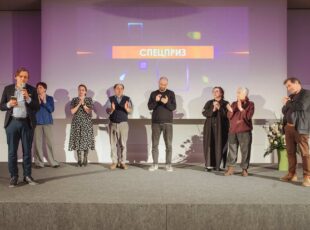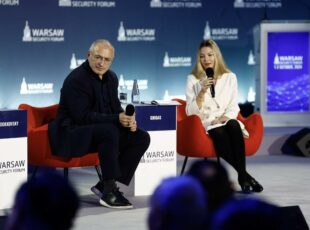John Lough at Boris Nemtsov Forum, Brussels
John Lough summarises the discussion of the working group on Europe and Russia in the World
“It was actually a very good and very interesting discussion with some very high quality presentations.
“We, Nikolai Petrov and I, my co-chair and I, decided to split the discussion into two sections. So for the first section we asked the question: what [are] the challenges facing the EU and Russia, and what can the two sides do to prevent further – what we described as – mutual alienation.
“And one participant immediately said that mutual alienation was an understatement and we should speak about, in fact, systemic confrontation, and I think, of course, there is some truth
in that. And in the second part of the discussion this morning we looked at, more specifically, at what would be needed, or will be needed, to transform Europe’s relations with Russia.
“And I’ll just focus on what you call in Russian the sukhoi ostatok, the dry residue of the discussion, the key practical measures that we came up with. Firstly, we should drop the pretence of being partners and move from what one participant described as an unstable quasi-partnership to a stable non-partnership.
“And I actually rather like that. When I hear Mr Putin, Mr Lavrov talking about “our Western partners” when they mean anything but “our Western partners” – these terms have simply become inappropriate. So to a very real extent we in Europe need to think about Russia as a country presenting an enormous challenge, of being an opponent.
“But at the same time this does not exclude dialogue, but at least one person cautioned that when we talk about common interests – and in the EU context we tend to talk about commonalities a great deal – common interests are not necessarily the same thing as shared interests.
“Secondly, there was quite a strong view among participants that we need to adopt more personal sanctions with regard to officials and individuals in Russia as part of a broader policy for deterring certain types of behaviour by Russia, but at the same time we need to move away from what I’ve described as a sanctions-only policy: in other words, having sanctions in place should not be a substitute for having a broader policy.
“The third set of suggestions were [centred] around the idea of creating a mechanism to bring Russian civil society into contact with Europe, and doing this more formally – and somebody suggested the fact that should be done on the basis of the Boris Nemtsov Forum – and at the same time setting up a formal community of experts both in Russia and Europe to discuss the blueprints for reforms in Russia that will come at a later stage. But these things need to be thought about together now, and I think those are very valuable suggestions.
“Two more: firstly, the EU needs to go back to simpler and smaller measures to support civil society. And a lot of emphasis people felt should be put on the social dimension here – this is a very important way of influencing civil society more broadly, and one participant suggested that under Mrs Mogherini there should be a special coordinator appointed for societal contacts.
“And really, I think, possibly in line with the suggestion, the fifth point was that we need to extend cultural contacts and programmes, even to include subjects such as law, and I think this is a very valuable idea, that law could fall very neatly under cultural contacts, and there’s a great deal of work there to increase the legal expertise in Russia.
“Now one area of dissension perhaps within the group was that on the role of the Russian diaspora in EU countries, and a very wide range of views here, some people feeling that they identified it as in fact a major problem, because the Russian diaspora can be very pro-Putin in terms of attitudes and is therefore difficult to influence, whereas others felt that it could be seen and should be seen as an instrument for influencing developments in Russia – in other words, as an agent of change.
“But at the same time, as one participant put it – to my mind, rather memorably – saying we can’t change Russia for now, but we can stop Russia changing us, and of course the diaspora also plays a role. I’ll stop there, thank you.”



